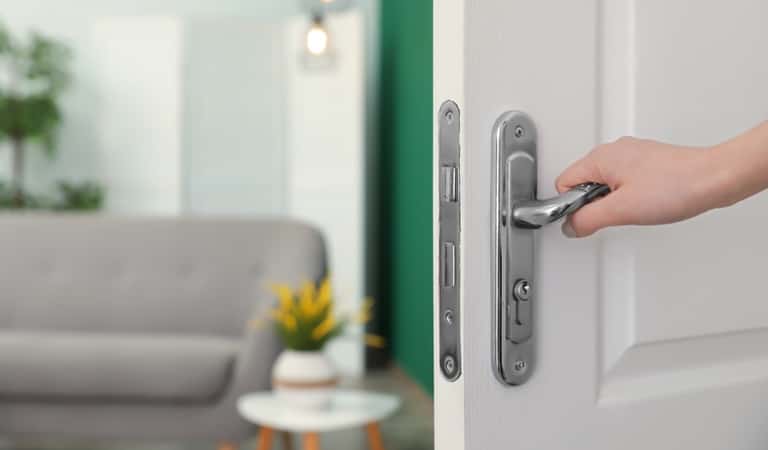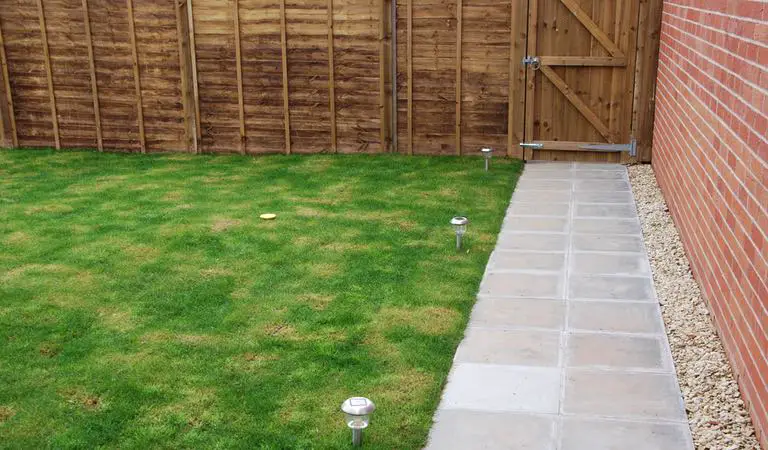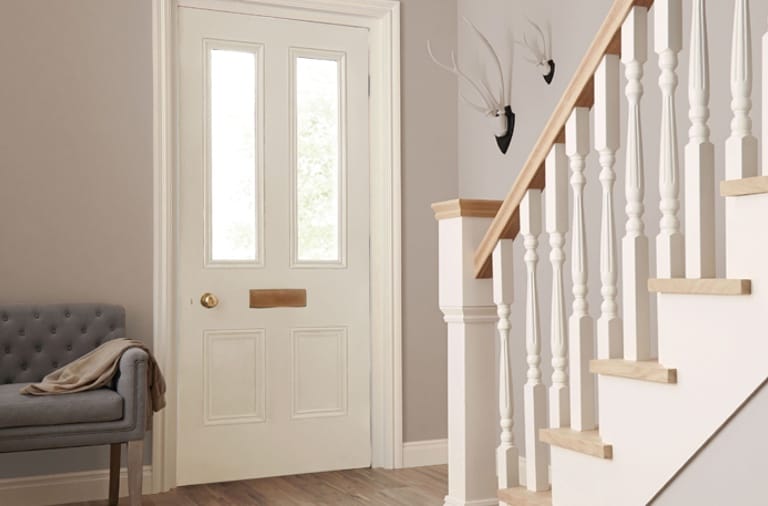It’s important to know your rights as a landlord, and just as important to know and respect the rights of your tenants.
There will be times when you want to visit your investment property to check on repairs or the general condition once the tenants have had time to settle in.
But are you allowed to enter the tenants home when they are not in?
Landlords cannot enter a tenant’s home when they are not in, without their permission. Legally, landlords are obligated to give tenants at least 24 hours notice before visiting the property. Other than emergencies, landlords are not allowed to enter the property without the tenants permission.
As a landlord, you must always keep in mind that the property is the tenants home, and not yours. Landlords have a responsibility to communicate with the tenant, either directly, or through the property managing agent, when the need arises for them to visit the property.
Contents
- Can A Landlord Enter A Property Without The Tenant Being Present?
- Can A Tenant Refuse Entry?
- Can A Landlord Gain Entry Without Permission?
- What Is Classed As An ‘Emergency’?
- Reasons For Landlords Requesting Entry To A Tenants Home
- Can A Landlord Enter A Garden Without Permission?
- Tenants Are Entitled To Their Privacy
Can A Landlord Enter A Property Without The Tenant Being Present?
With the consent of the tenant, yes a landlord can enter a tenants home when they are not present.
There are a number of reasons for both parties agreeing to this. For example, an item of furniture or a fixture and fitting may need repairing or replacing.
A tenant who is renting a property part furnished may have problems with the oven and the landlord may want to visit before they decide whether to repair or replace it. The tenant may decide to give the landlord permission to enter the property whilst they are at work to avoiding having to take time off.
Whether the tenant has reported a fault at the property, or whether I need to visit the property for another reason, my preference is always to be there whilst the tenant is home.

This is because it gives me time to talk to the tenant and ask if there are other areas they are not happy with, or if there is room for improvement, or if they have any other concerns.
It is in my best interest to ensure the tenant is satisfied because the happier they are, the longer they are likely to stay if their circumstance don’t change.
Can A Tenant Refuse Entry?
Landlords, or a representative, will occasionally need to enter a tenants home in order to meet their legal obligations, and a tenant cannot refuse a notice of entry for the requirements to be met. It would, however, be reasonable for the tenant to request a change to the proposed date and time.
Section 11(6) of the Landlord And Tenant Act 1985 defines this need:
In a lease in which the lessor’s repairing covenant is implied there is also implied a covenant by the lessee that the lessor, or any person authorised by him in writing, may at reasonable times of the day and on giving 24 hours’ notice in writing to the occupier, enter the premises comprised in the lease for the purpose of viewing their condition and state of repair.
Communication is key to maintaining a good relationship between tenants and landlords. I would also add that it is the responsibility of the landlord to ensure that lines of communication are good if they are using a property managing agent.
Landlords should plan ahead and request entry to the property, well in advance of a need to visit a property.
The more notice given to a tenant for a visit, the better.
This will allow time for appointments to be rescheduled if the initial proposed date and time does not suit the tenant, without the landlord missing deadlines for their legal obligations.
Can A Landlord Gain Entry Without Permission?
A landlord can only gain entry to a property, without the tenants permission, in extenuating circumstances, or in other words, ‘emergencies’.
By law, tenants have the right to ‘quiet enjoyment’ of the property.
This means that you as a landlord are not allowed to disturb them. There are instances in which landlords have to visit the property (mostly for maintenance reasons), but aside from that, tenants are to live undisturbed.
People who enter other peoples homes without permission by either the occupier or the court, are trespassing and are committing a criminal offence.
Only a court can overrule the right for quiet enjoyment, which may grant permission for the landlord to access the tenants home without their consent.
Both landlords and tenants agree to this in writing before the start of a tenancy. When landlords sign an Assured Shorthold Tenancy agreement, they are agreeing to surrender the possession of the property to the tenant for the agreed fixed term.
Along with the possession, the tenant also automatically gains the right of quiet enjoyment.
The Assured Shorthold Tenancy protects the landlord to. If someone is able to gain access to a landlords property without signing an Assured Shorthold Tenancy agreement, it can be very costly to have the occupiers removed quickly and legally.
Tenants have control over who enters their home, when they enter their home, and under what circumstances. This includes the landlord, tradesmen, property inspectors and even the police; unless there is an issued court order allowing access.
However, there are instances when a landlord or letting agent will need access to enter a tenants home.
But in order to gain access, the landlord or managing agent must serve the correct notice to the tenant.
This means that a notice is served and accepted at least 24-hours before the time of entry. The proposed visit must also be at a reasonable time of day and allow the tenant to be present.
Proposed visits at night or early in the morning can be turned down.
In fact, any visit can be turned down if the tenant is not able to be present at the time. The notice must specify who will be entering the premises and for what purpose, for example, a gas engineer to issue an annual Gas Safe Certificate.
And finally – the notice must respect the tenant’s right to quiet enjoyment of the property.
What Is Classed As An ‘Emergency’?
Landlords or property managing agents are able to access a tenants home without their permission in the following circumstances:
- There has been structural damage to the property which urgently needs attention
- There is a fire in the property
- There is a smell of gas coming from the property
- There is flooding coming from the property
- There is suspicion of a violent or criminal activity within the property

Reasons For Landlords Requesting Entry To A Tenants Home
There are many legitimate reasons why a landlord would request entry to a tenants home. It’s important that both parties have an understanding of the reasons and requirements for the visits at the start of the tenancy, and that they are able to communicate effectively when the need arises.
Common reasons are, but not limited to:
Inventory
A landlord or letting agent will take inventory of the property when a tenant moves in, and once again when they are moving out. They will also benchmark the overall condition of the property.
Tenants have a right to accompany the landlord during the inspection, request a copy of the report and have the ability to comment on any statements made in the report before signing to confirm that they are satisfied with the report that is filed.
Inspection Of The Property
There are reasonable intervals throughout a tenancy when a landlord or letting agent can inspect the property. Inspections are typically conducted no more than every three months, and no fewer than every six months.
Inspections are routinely conduct to identify any damage or deterioration to the property before it becomes too difficult to repair.
Repairs And Maintenance
it’s a landlord’s duty to keep the property habitable, functional, and to maintain and repair anything that requires attention. Hopefully the tenant will promptly report any faults or repairs needed to the property before they get too serious.
But the landlord must once again request permission to enter the property at a reasonable time of day, and when the tenant is available to be at home, if that’s their preference.
This also includes granting access for tradesmen. Landlords don’t have the knowledge or skills to undertake all repairs and maintenance issues, and will often hire qualified professionals to carryout the work needed.
Annual Gas Safety Check
The law requires landlords to renew the Gas Safety Certificate annually. To do this, a certified Gas Safe Registered engineer will need to check the gas installation and appliances within the property.
Marketing The Property
Prior to a tenancy agreement ending, a landlord or letting agent can market the property to prospective tenants ahead of time to reduce the chance of any void periods.
Sitting tenants are expected to grant permission for these visits whilst keeping the property tidy.
Can A Landlord Enter A Garden Without Permission?
A tenancy agreement with includes the use of garden, will require the landlord or property managing agent to request permission before entering the garden.
It would be illegal for anyone to enter any part of the premises without the express permission of the tenant beforehand.

Tenants Are Entitled To Their Privacy
To succeed as a landlord, you will need to understand and respect the rights of your tenants, whilst providing an exemplary service to them.
As I mentioned at the start of this article, your rental property is the tenants home and not yours.
I don’t want you to feel anxious about requesting permission to enter your investment property if the need arises, but I do want you to understand the requirements so that you can check up and maintain your investment for everyones benefit.
Turning up to your rental property unannounced is unacceptable. And repeatedly turning up unannounced is considered harassment.
Put yourself in the tenants shoes. Would you want someone, outside of your friends and family, turning up at your home unannounced asking if they could come in? Would you be happy to discover that someone entered your home whilst you were out? I expect not.
I know for sure that I wouldn’t be happy!
There are a few additional points that I would like to make with regards to visiting a tenants home.
Make sure that your requested visit is necessary. Especially near the start of the tenancy. Give your tenant time to settle in and make themselves at home.
I think three months is a good timeframe for this, and you can then request a visit to inspect the property and answer any questions they may have.
Some tenants will not hesitate to make contact if they have a problem, whether it’s changing the heating settings or reporting a dripping tap, whilst other tenants are more reserved and feel uncomfortable making requests.
So by making time to contact the tenant and requesting time to visit to help make ensure everything is ok, you will actually be doing them a favour.
When you visit your tenants home, take the time to ask if they have had any other issues that you are not aware of, or if they have any questions. They may have previously forgotten to ask something or felt that something was too minor to make contact, but feel comfortable to mention it whilst you are there.
And lastly, make sure you do not overstay your welcome. Deal with the issue in hand, reassure them that you are contactable if they encounter any other issues, and then politely leave.


